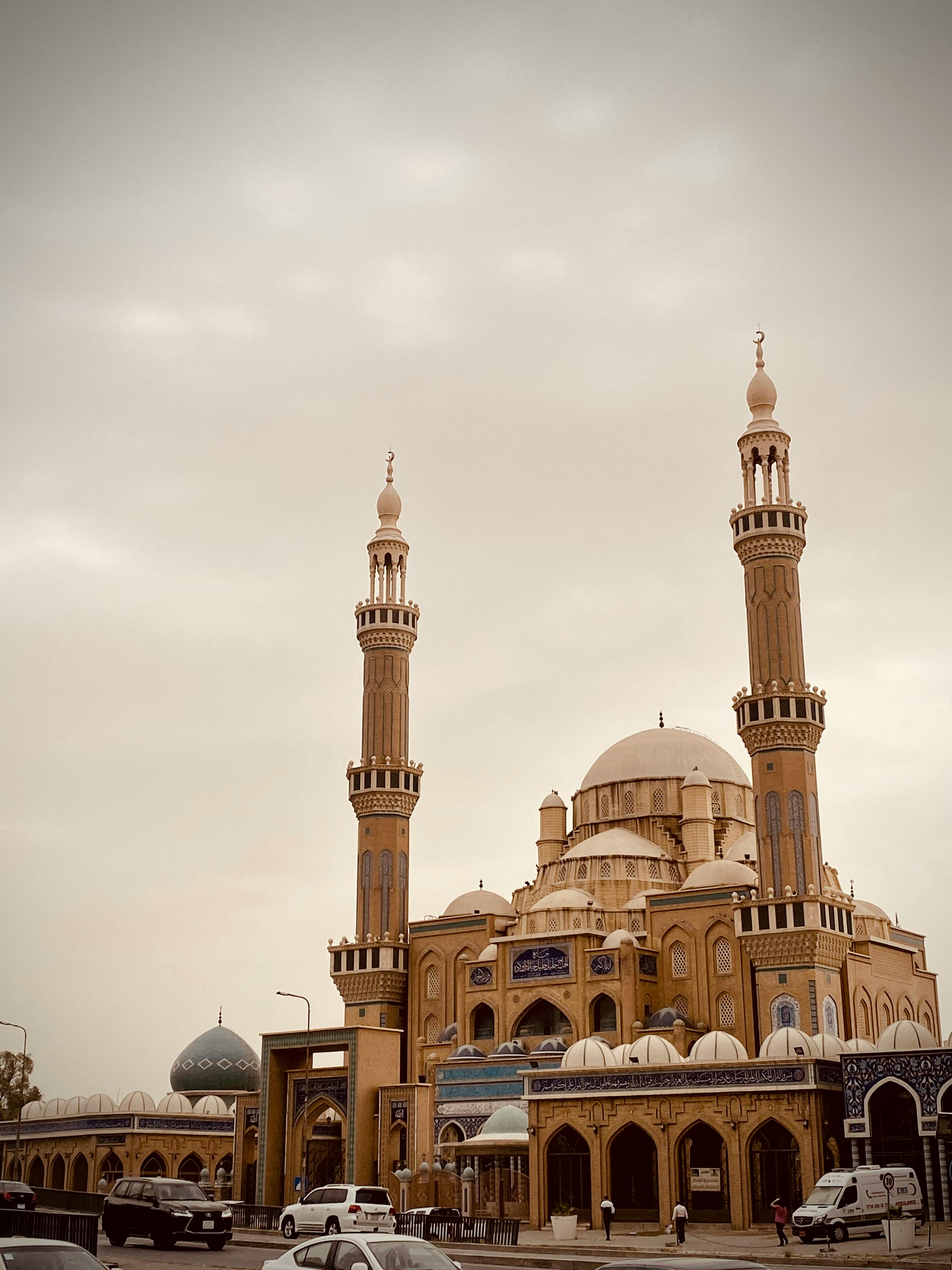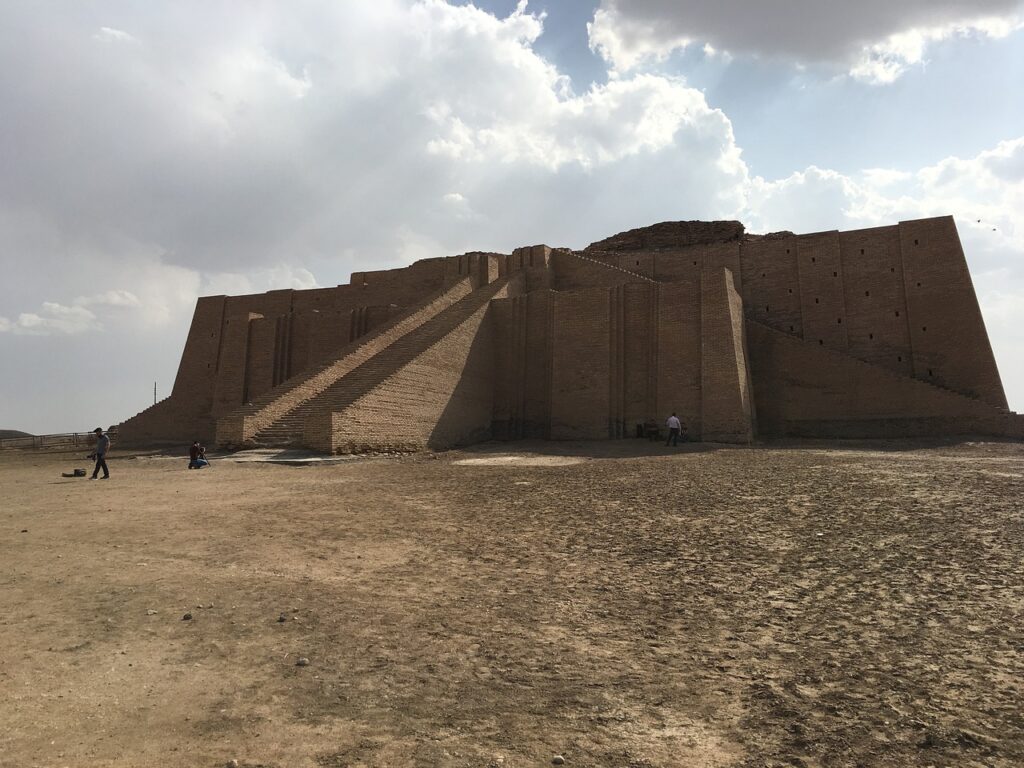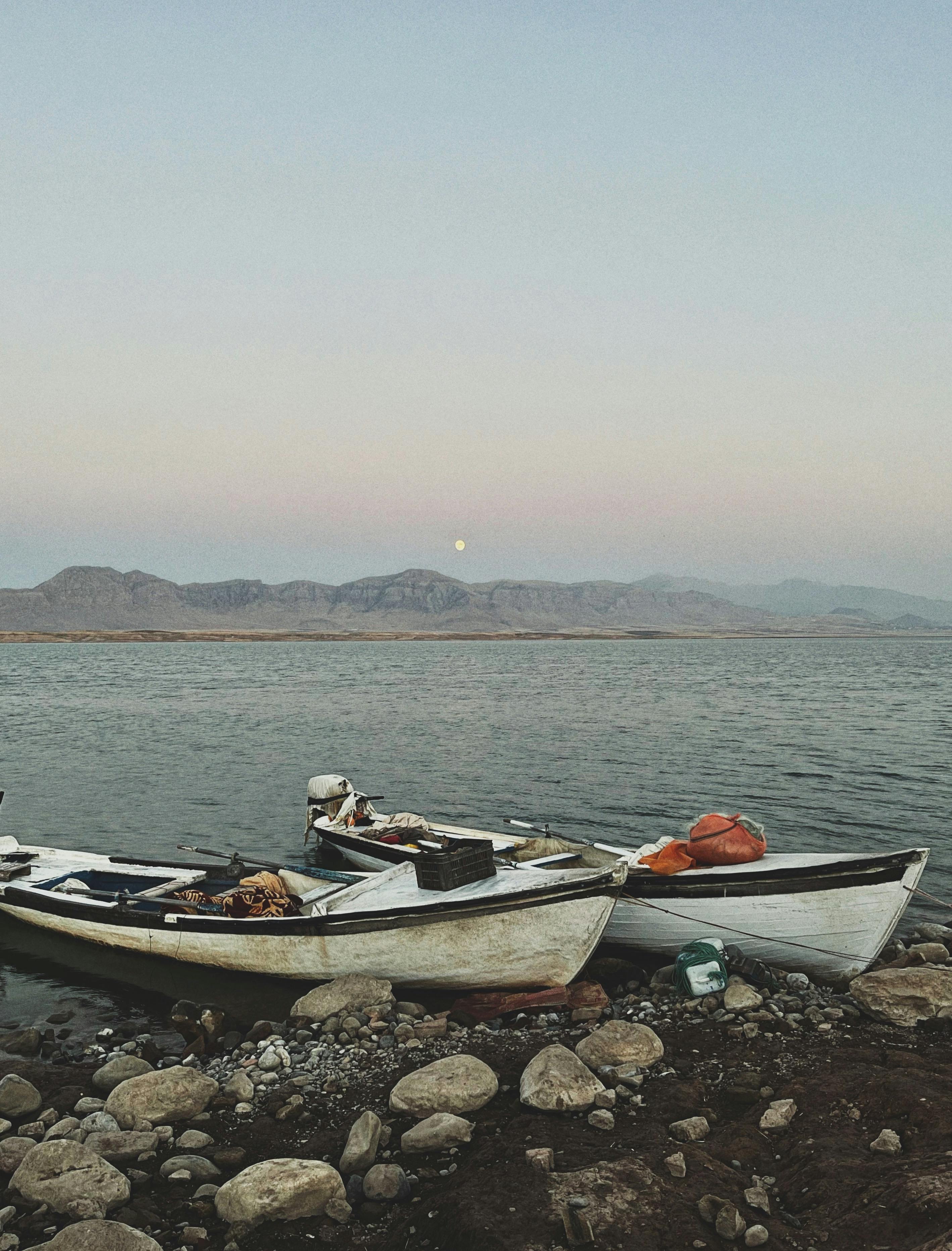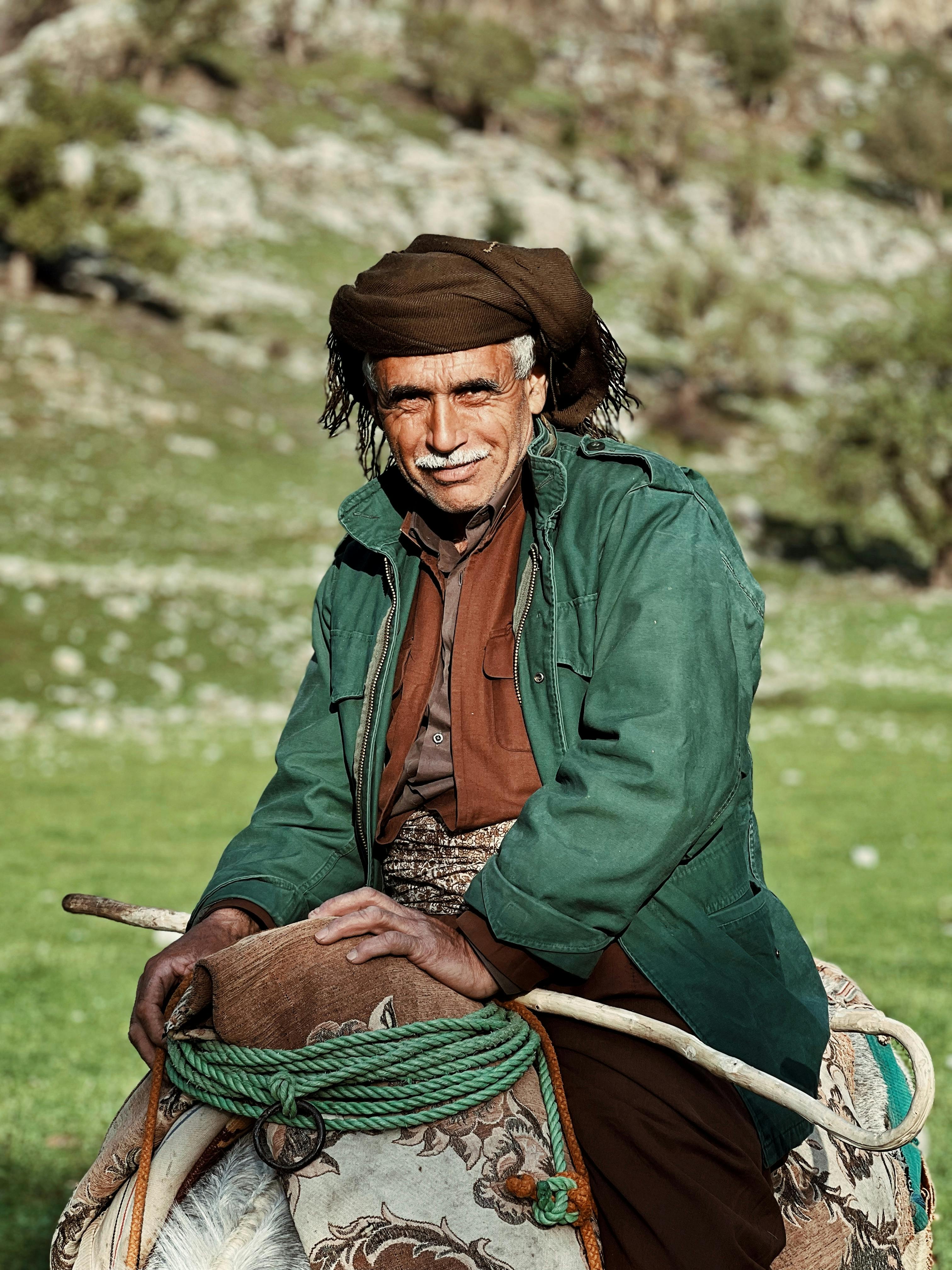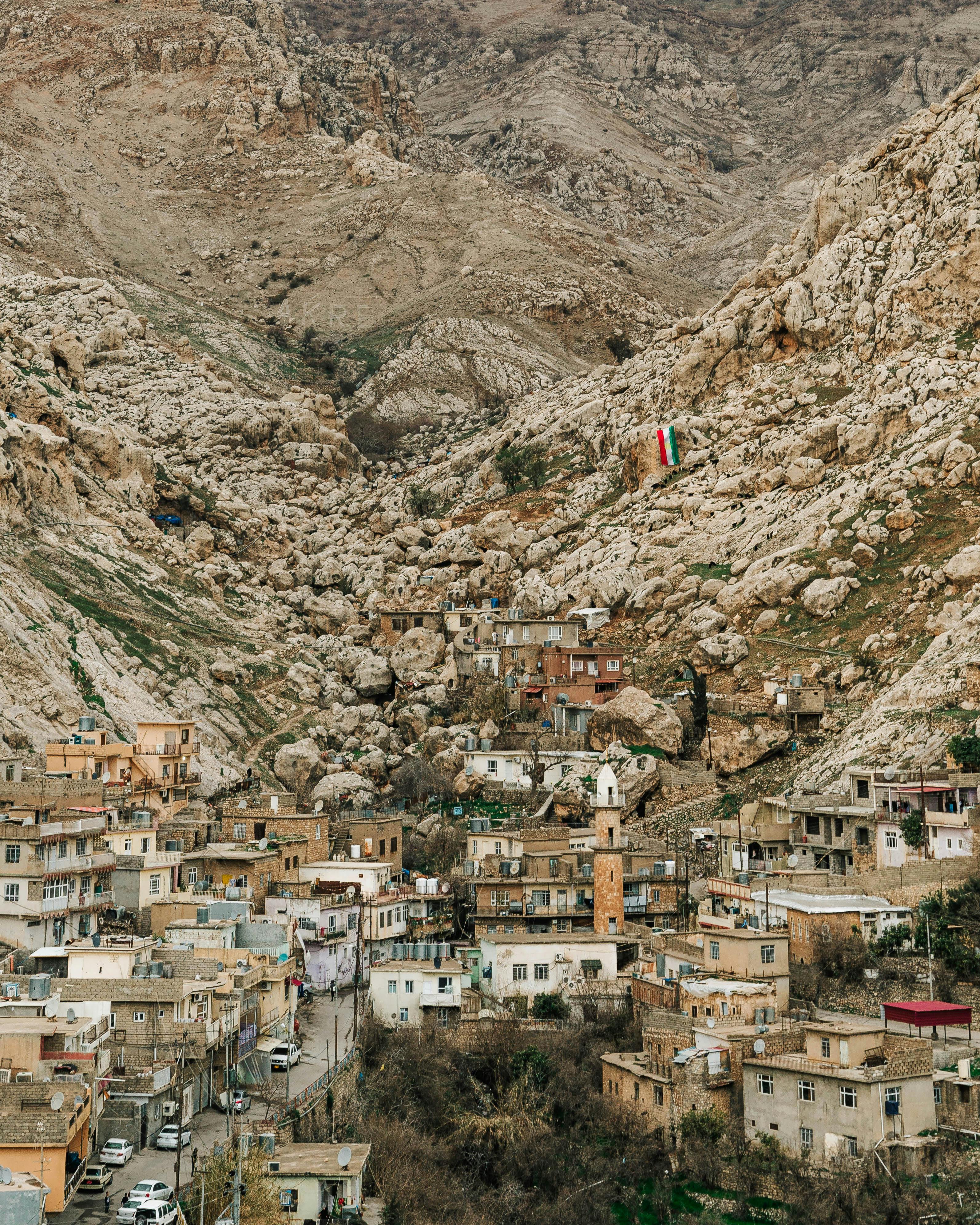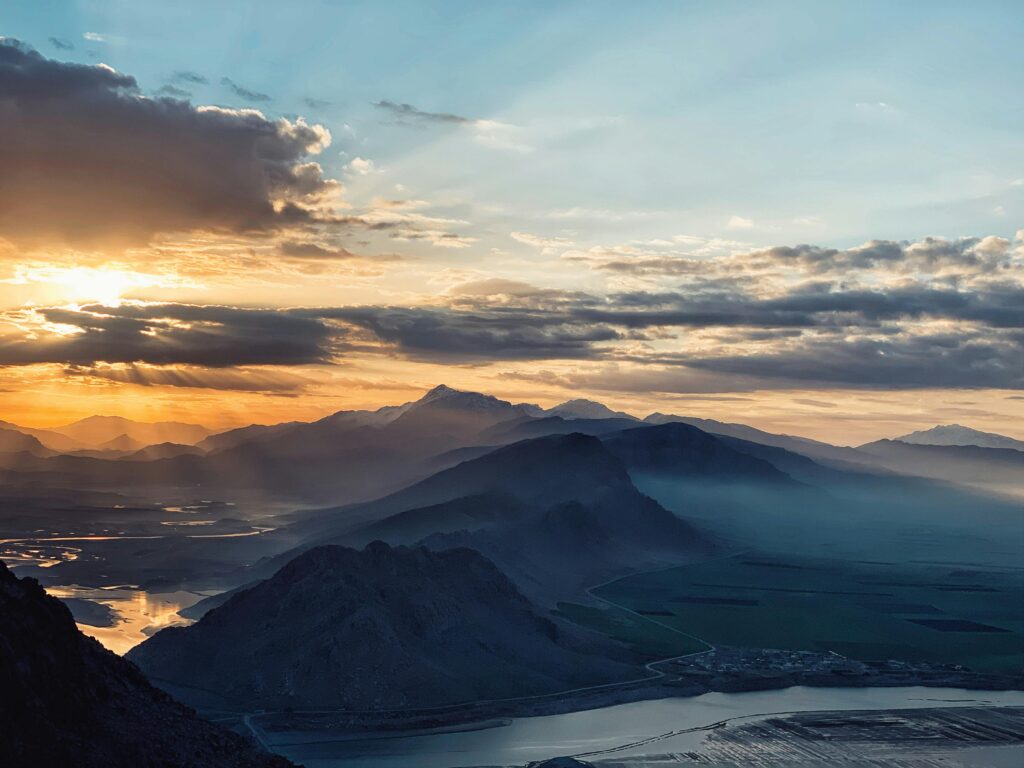Stepping off the bus in Baghdad, the weight of history and cautionary tales hung heavy on my shoulders. I wasn’t here to tour the sights, being shuttled from one safe guided tour or fortified compound to the next. With a backpack full of questionable decisions and a wallet barely clinging to double digits, I would explore an uncharted, untouristed Iraq-lined beyond the headlines and the hospitality warnings.
For the fearless voyager, Iraq remains one of the world’s last real frontiers: a land of ancient cities, harsh landscapes, and resilient people. And for the broke backpacker, its uncharted territories offer an unlikely paradise: dirt-cheap hospitality, unexpected generosity, and adventures that will leave you questioning every preconceived notion.
Come with me now as I wind my way in, via dusty roads, makeshift markets, and warm welcomes, on a broke budget where the only thing thinner on the ground than my dinars is the tourist infrastructure. From mountain strongholds in Kurdistan to the languid flow of the Tigris, I’ll be sharing stories, struggles, and triumphs of traveling Iraq on the cheap-and discovering that sometimes it’s the places we’re warned against that offer the greatest rewards.
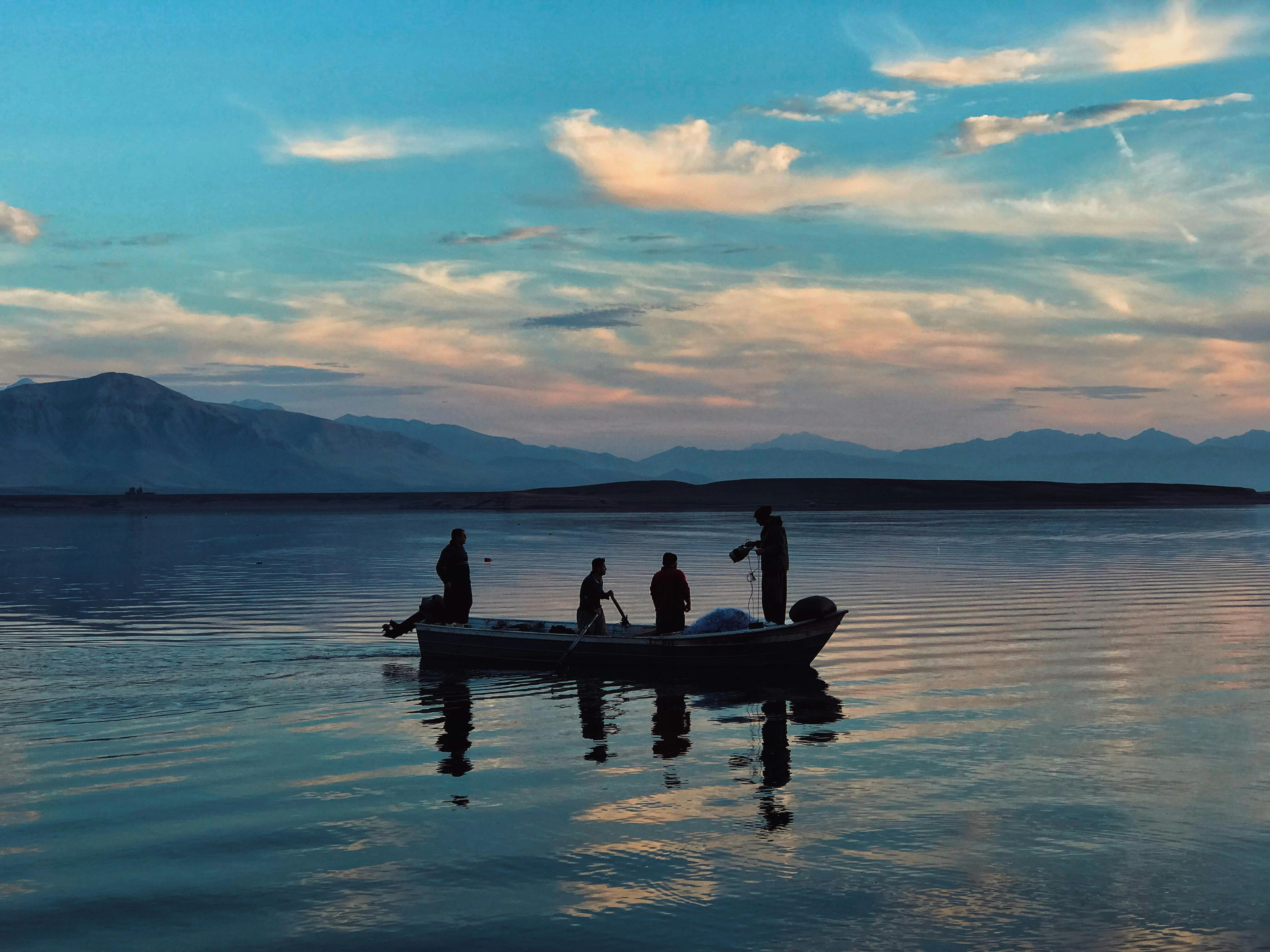
How to get there:
Note: If you’ve dine hitchhiking in the past it is the best way to get around those areas you just gotta have some big balls and some experience.
From Turkey
- Istanbul to Silopi: Take a bus from Istanbul’s Otogar to Silopi (around 20 hours, 200-300 TRY).
- Silopi to Zakho: Cross the border at Habur Border Gate. From Silopi, take a taxi or minibus to the border (10-15 TRY). On the Iraqi side, take a taxi to Zakho (around 10,000-15,000 IQD).
- Zakho to Mosul or Erbil: Regular buses connect Zakho to Mosul (around 2-3 hours, 5,000-10,000 IQD) and Erbil (around 4-5 hours, 10,000-15,000 IQD).
From Iran
- Tehran to Urmia: Take a bus from Tehran’s Western Terminal to Urmia (around 6-8 hours, 200,000-300,000 IRR).
- Urmia to Haji Omaran: Take a taxi or shared taxi to the Haji Omaran border crossing (around 100,000-150,000 IRR).
- Haji Omaran to Erbil: After crossing, take a taxi to Erbil (around 30,000-50,000 IQD).
From Jordan
- Amman to Baghdad: Take a bus from Amman’s Abdali Bus Station to Baghdad (around 24 hours, 50-70 JOD). This route may involve changes in Damascus or other Syrian cities.
- Alternative Route: Take a bus from Amman to the Jordan-Iraq border at Trebil (around 4-5 hours, 20-30 JOD). Cross the border and take a taxi to Ramadi (around 20,000-30,000 IQD) or Baghdad.
From Kuwait
Safwan to Basra: After crossing, take a taxi or bus to Basra (around 10,000-20,000 IQD
Kuwait City to Safwan: Take a bus or taxi to the Kuwait-Iraq border at Safwan (around 1-2 hours, 5-10 KWD).
When to go:
pring (March to May)
- Weather: Mild temperatures (15-25°C/59-77°F), minimal rainfall.
- Pros:
- Comfortable temperatures.
- Fewer sandstorms.
- Cons:
- Some areas may still experience cold nights.
Summer (June to August)
- Weather: Extremely hot temperatures (40-50°C/104-122°F), minimal rainfall.
- Pros: None
- Cons:
- Sweltering heat.
- Increased risk of heat-related illnesses.
Autumn (September to November)
- Weather: Warm temperatures (20-30°C/68-86°F), minimal rainfall.
- Pros:
- Comfortable temperatures.
- Reduced risk of heat-related illnesses.
- Cons:
- Some areas may experience occasional rain.
Winter (December to February)
- Weather: Cool to cold temperatures (5-15°C/41-59°F), occasional rainfall.
- Pros:
- Cooler weather.
- Reduced risk of heat-related illnesses.
- Cons:
- Rainfall may limit outdoor activities.
- Cold nights.
Regional Variations
- Southern Iraq: Extremely hot during summer, mild winters.
- Northern Iraq (Kurdistan): Cooler summers, colder winters.
- Mountainous regions: Cold winters, mild summers.
Best Time to Visit
September to November: Reduced heat.
March to May: Comfortable temperatures.
Best Itineraries:
1-Week Itinerary
Day 1-2: Erbil
- Explore Erbil Citadel, Kurdistan Museum, and local markets
Day 3-4: Dohuk
- Visit Dohuk Dam, Amadiya, and ancient ruins
Day 5-6: Mosul
- Explore Mosul Museum, Al-Nuri Mosque, and ancient city walls
Day 7: Return to Erbil
- Transportation: Shared taxis or buses
2-Week Itinerary
Week 1:
- Days 1-3: Erbil (explore city, citadel, and markets)
- Days 4-6: Dohuk (visit dam, Amadiya, and ancient ruins)
- Days 7-9: Mosul (explore museum, mosque, and city walls)
Week 2:
- Days 10-12: Kirkuk (visit ancient fortress, museum, and oil fields)
- Days 13-14: Baghdad (explore National Museum, Green Zone, and markets)
1-Month Itinerary
Week 1-2:
- Explore Kurdistan Region (Erbil, Dohuk, Sulaymaniyah)
- Visit ancient sites, museums, and local markets
Week 3:
- Travel to Mosul, Kirkuk, and Tikrit
- Explore historical sites, cities, and local culture
Week 4:
- Visit Baghdad, Karbala, and Najaf
- Explore National Museum, shrines, and markets
3-Month Itinerary
Month 1:
- Explore Kurdistan Region, including rural areas
- Visit ancient sites, museums, and local markets
Month 2:
- Travel to central and southern Iraq (Mosul, Kirkuk, Baghdad)
- Explore historical sites, cities, and local culture
Month 3:
Explore southern Iraq’s ancient sites and marshlands
Visit Shi’ite holy cities (Karbala, Najaf, Basra)
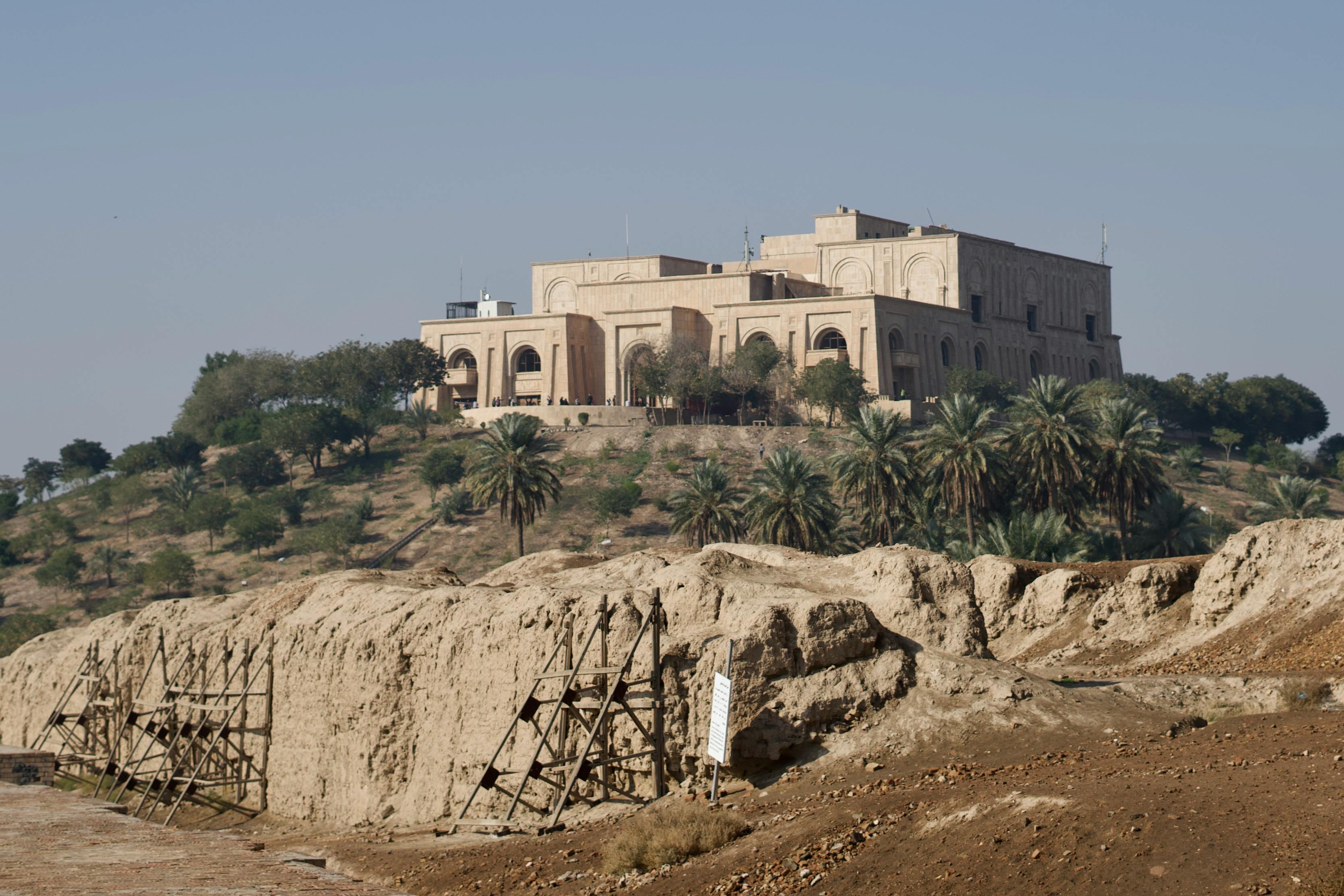
Transportation:
As I stepped off the bus in Erbil, I knew that my transportation adventures in Iraq were only just beginning. With a mix of excitement and trepidation, I embarked on a journey to explore the country’s complex and often unpredictable transportation network.
Shared Taxis: The Lifeline
In Iraq, shared taxis (or “servees”) are the backbone of public transportation. These vehicles, usually aging Toyota Corollas or Hyundai Elantras, cruise the streets, picking up passengers along designated routes. For a few dollars, you can hitch a ride to almost anywhere in the city.
But be prepared for an intimate experience – six passengers crammed into a five-seater is not uncommon. And don’t worry if the driver takes a few unscheduled detours; it’s all part of the servees’ charm.
Buses: The Long-Haul Option
For longer journeys, buses are the way to go. Companies like Asiacell and Sanaa connect major cities, offering a relatively comfortable ride for a fraction of the cost of a taxi.
However, be prepared for unexpected delays and route changes. I once found myself on a bus headed to Mosul, only to be redirected to Kirkuk due to security concerns.
Hitchhiking: The Wild Card
Hitchhiking in Iraq is an art form. With a mix of hand gestures, smiles, and basic Arabic phrases, you can flag down a ride from friendly locals.
My first hitchhiking experience was with a truck driver named Ahmed, who took me from Erbil to Dohuk. We shared stories, laughed, and even stopped for tea along the way. It was a glimpse into Iraq’s legendary hospitality.
Road Conditions: The Unpredictable Factor
Iraq’s roads are a tale of two worlds. Modern highways connect major cities, while rural routes resemble lunar landscapes.
Be prepared for potholes, dust storms, and the occasional checkpoint. And don’t be surprised if your driver takes a detour through a village or two – it’s all part of the adventure.
Top things to do:
Kurdistan Region
- Erbil:
- Erbil Citadel (ancient fortress)
- Kurdistan Museum
- Local markets (bazaars)
- Shanidar Park
- Erbil Water Park
- Kurdish Textile Museum
- Dohuk:
- Dohuk Dam
- Amadiya (ancient town)
- Zawa Mountain
- Dohuk Museum
- Dohuk Waterfall
- Gara Mountain
- Sulaymaniyah:
- Sulaymaniyah Museum
- Halabja Memorial
- Azmar Mountain
- Local markets
- Sulaymaniyah Palace
- Zhest Resort
Northern Iraq
- Mosul:
- Mosul Museum
- Al-Nuri Mosque
- Ancient city walls
- Tigris River
- Nineveh Archaeological Site
- Mosul University
- Kirkuk:
- Kirkuk Fortress
- Kirkuk Museum
- Oil fields
- Ancient Sumerian ruins
- Kirkuk Citadel
- Qishla Mosque
- Tikrit:
- Tikrit Fortress
- Saddam Hussein’s Palace
- Ancient Assyrian ruins
- Tikrit Museum
- Al-Awja Village
Central Iraq
- Baghdad:
- National Museum of Iraq
- Green Zone
- Al-Faw Palace
- Al-Mutanabbi Street
- Baghdad Tower
- People’s Museum
- Samarra:
- Al-Askari Shrine
- Samarra Archaeological City
- Malwiya Minaret
- Samarra Museum
- Abu Dulaf Mosque
- Hillah:
- Babylon Archaeological Site
- Hillah Museum
- Ancient city ruins
- Al-Muqdadiyah Mosque
Southern Iraq
- Basra:
- Basra Palace
- Shanasheel houses
- Basra Museum
- Shatt al-Arab River
- Basra Old Town
- Al-Basra Oil Terminal
- Najaf:
- Imam Ali Shrine
- Wadi-us-Salaam Cemetery
- Najaf Museum
- Ancient city ruins
- Al-Hannanah Mosque
- Karbala:
- Imam Husayn Shrine
- Al-Abbas Shrine
- Karbala Museum
- Ancient city ruins
- Al-Hurr Water Reservoir
Ancient Sites
- Ur (ancient Sumerian city)
- Uruk (ancient Sumerian city)
- Babylon (ancient city)
- Nineveh (ancient Assyrian city)
- Hatra (ancient Parthian city)
- Ashur (ancient Assyrian city)
- Ctesiphon (ancient Sassanian city)
Natural Attractions
- Mesopotamian Marshes
- Iraqi Desert
- Tigris River
- Euphrates River
- Zagros Mountains
- Al-Hammar Marshes
- Qara Dagh Mountain
Cultural Experiences
- Attend a traditional Iraqi tea ceremony
- Visit a local market (bazaar)
- Try traditional Iraqi cuisine (masgouf, dolma, etc.)
- Attend a Kurdish or Arabic music performance
- Visit a mosque or shrine during prayer time
- Participate in a traditional Iraqi wedding
- Learn Arabic calligraphy or traditional crafts
Outdoor Activities
Exploring Iraq’s many national parks
Hiking in the Zagros Mountains
Desert camping in the Iraqi Desert
Fishing in the Tigris or Euphrates River
Visiting ancient sites at sunrise or sunset
Taking a boat tour of the Mesopotamian Marshes
Food:
The Iraqi cuisine is so varied that it forms the identity of Iraqi culture, blending influences from Arabic, Kurdish, Turkish, and Persian. From thick stews to grilled meats full of flavor, Iraq can be a treasure trove of flavors to discover.
The dishes include traditional Iraqi cuisine: the famous masgouf consists of a dish made from grilled carp, served with onions, tomatoes, and flatbread; dolma-fruit and vegetables filled with rice, meat, and spices-is another favorite. Gormeh Sabzi, a stew made with lamb or beef, herbs, and dried lime, is hearty enough to warm the hearts and bellies of Iraqis and visitors alike.
Regional dishes range from tender lamb kebabs with fresh flatbread and onions, all served together in Erbil, down to Basra’s finest fresh fish, usually grilled or fried and given with rice and spices. Mosul holds an important reputation for its unique dolma taste, while Baghdad is famous for masgouf. Street food and markets also make up a great deal of Iraq’s culinary experience. The falafel is served in a pita, basically a crispy and flavorful chickpea patty, topped with veggies and tahini sauce. This is great street food, second only to Shawarma: a thinly cut meat served with veggies and tahini on a pita bread. Fresh juices are revitalizing and available everywhere, like orange, pomegranate, and grape. At the local markets, such as Al-Mutanabbi Street in Baghdad or Erbil’s Bazaar, fresh colorful produce, spices, and sweets fill the stalls with their aromatic scents and tastes.
Culture:
Iraq is a country with an extensive historical and cultural background, given the diversity of history, geography, and populace. The Iraqi culture is one of the most alive in the world; it represents Arabic, Kurdish, Turkish, and Persian cultures all put together, from ancient Mesopotamian times to present times.
Iraq boasts a modern-day culture that bears traces of its ancient history in its identity. Mesopotamia, the “cradle of civilization,” saw the rise and fall of empires such as the Sumerians, Babylonians, and Assyrians. These cultures still leave an indelible stamp on Iraqi culture through its architecture, art, and literature.
Starting in the 7th century CE, the coming of Islam began to take a strong effect on Iraqi culture. Mosques and shrines are interspersed with Islamic schools dotting the landscape, reflecting the nation’s strong Islamic tradition. The cities of Najaf and Karbala are revered Shia Islamic pilgrimage sites.
The Kurdish people of Iraq have much to contribute toward adding color and variety to the cultural outlook of the country. Vibrant traditions, a language, and customs mark Kurdish culture. If one wants to pay a cultural visit there, the natural beauty of the Kurdish region is second to none as far as folklore and hospitality are concerned.
Iraqi art is often characterized by “intricate calligraphy, geometrical patterns, and bright colours.” Richness in Iraq with artefacts can be traced back to ancient Mesopotamian heritage, along with Islamic ceramics and contemporary paintings. Architecture also ranges from the ruins of Babylon and Ur to mosques and palaces of the Ottoman period. Modern Iraqi architecture incorporates traditional touches into chic modern designs.
Literature in Iraqi culture is very important, forming a foundation with the epic poems of ancient Mesopotamia on which Arabic literature was based. Indeed, modern Iraqi poets continue to build upon that legacy, weaving intricate tapestries of love, war, and identity within lines of verse.
The main instruments of the traditional Iraqi music are the oud, qraqeb, and naqara. Traditional folk dances, such as dabke, are performed at weddings and various festivities. Iraqi cuisine is a variety of flavors between Arabic, Kurdish, and Persian; popular dishes like masgouf, dolma, and gormeh sabzi represent the country’s rich history in food.
Iraqi society is well-liked for its amiable hospitality, respect towards elders, and strong bonds of family. Traditional clothing such as the dishdasha and headscarf are worn with pride. Festivals and Celebrations: Nowruz and Eid al-Fitr bring communities together in joyful celebration.
Meanwhile, Iraq’s cultural heritage suffers through various conflicts and displacements due to economic turmoils. Traditional crafts are at work, being revived along with music and literature. Much effort has been put into preserving Iraq’s cultural identity by so many organizations and individuals.
Iraqis have culturally manifest their resiliencies and diversities through their rich heritage. While peering closely at the Iraqi and his deep-rooted culture, it is important to delve back into history, the arts, literature, and traditions that build up into a culture.
The Iraqi Ministry of Culture is responsible for the conservation of Iraq’s cultural heritage, along with the Iraqi National Museum. Its various conservation processes are also facilitated by UNESCO’s Iraq Cultural Heritage Initiative.
Go on a virtual tour to Iraq and let yourself be captivated by the warm welcome, teeming traditions, and unconquerable spirit of its people.
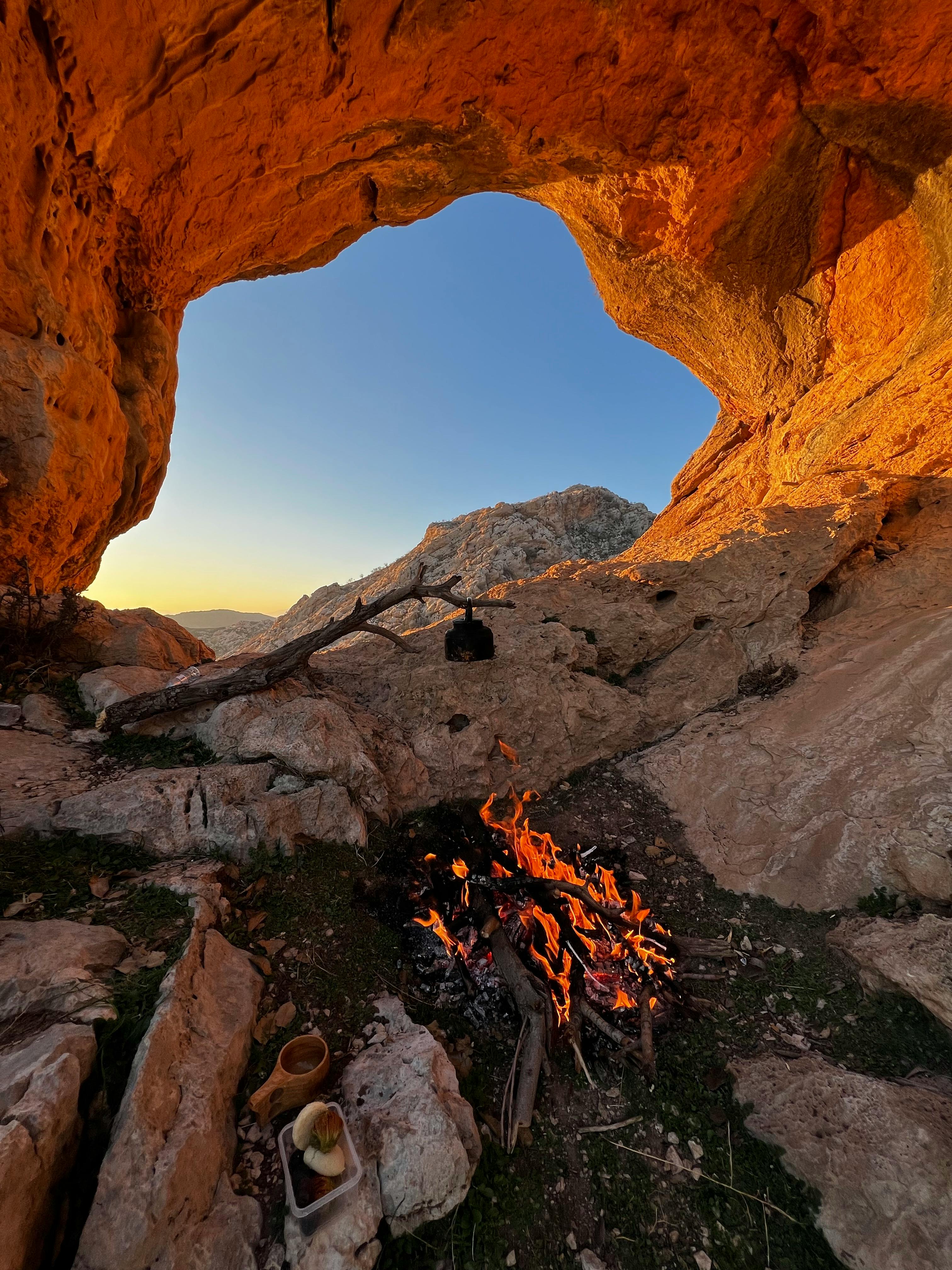
Accommodations:
What worked for me and most of my fellow poor backpackers was that the secret to finding amazing and quirky hostels isn’t to search through review sites or to pay extra for fancy amenities, but rather the opposite: just book the cheapest one. Repeatedly, my friends and I found that the budget choices end up being the real hidden gems. Sure, the description might be sparse and the photos questionable, but more often than not these below-the-radar hostels turn out to be teeming with community and character, full of fellow travelers and staff that become fast friends. You may have to give up a couple of frills, but it’s well worth the payoff – not only for your wallet but also for experiences and stories you have to tell when you take a chance with the unknown. So if you’re a fellow budget traveler looking for the real deal, take it from us: don’t overthink it, and just go for the cheapest option. Trust us, eventually it pays off!
Nightlife:
Iraq may be far from the minds of many seeking a party lifestyle, but finally Iraq’s cities are coming to life in the evenings-a new soft focus on its ancient traditional night-time entertainments, combined with very modern ones.
Compared to what it used to be, a nightlife has now started creeping back into Baghdad. Upscale neighborhoods, such as Karada and Karrada, have become trendy spots for locals and expatriates. Cafes and restaurants assume the excitement of nightlife, piping smoke of hookah through the air as streets are filled with concentrations of laughter and discussion.
To get a feeling of the traditional Iraqi way of life, take a walk along the fabled Abu Nawas Street that runs alongside the Tigris River. This beautifully ancient promenade is lined with quaint tea houses and cafes where locals as well as visitors sit and drink qraqeb, or traditional Iraqi tea, and smoke shisha. It is at night that this street assumes an eerily magical feel: lights from across the city twinkle across the river.
The Corniche area is the centre of Basra’s evening amusement-a scenic waterfront promenade with great views overlooking the Shatt al-Arab River, lined with restaurants, cafes, and shops. It is here that one can get a taste of local seafood delicacies, walk at ease, or simply sit back and watch the stars.
Being the capital of Kurdistan, this city is more cosmopolitan and laid back at night. Lively neighborhoods like Ankawa and Ainkawa boast international restaurants, bars, and cafes. Sipping cocktails from a rooftop bar or dancing on to the floors of a local nightclub, Erbil can present varied tastes in its nightlife.
Beyond the cities of Iraq, the towns come alive in the evening with festivals and cultural nights. At ancient Babylon, it is nothing but magic when the UNESCO World Heritage Site is illuminated, the playing of music is heard, there’s dancing, and traditional performing arts-just like Mosul’s historic city reviving its cultural scene with evening concerts and art exhibitions.
While Iraq’s nightlife is still in its comparative infancy, it nevertheless promises a unique blend of the traditional hospitality and modern entertainment so characteristic of the country. As the country continues to rebuild and recover, its nightlife creeps from behind the shadows to show the rather fascinating and unexpected side of this ancient land.
When going on a night adventure in Iraq dress modestly, and stay informed about security conditions. But with at least a slight amount of openness of mind and a hint of adventure, a night experience in Iraq may indeed become unforgettable.
Thus, walks through narrow alleys, finding something special in each one, and being deeply immersed in all those night views, sounds, and smells that happen in Iraq. Starting from casual performances in streets to spontaneous invitations to join locals for a party, there are many surprises of the night.
When night falls in Iraq’s cities, the cacophony of traffic and construction gives way to the cacophony of voices and laughter. Cardamom coffee and kebabs grilled on open fires fill the air with succulent aromas that tempt hurrying passersby to stop and treat themselves to some local flavor.
From the traditional tea houses to modern bars, tonight’s Iraqi nightlife scene reflects that resilience as well as its people’s hospitality. One IRAQI night time is continuously a testament to a nation that, despite everything, is persistent in its will to regain its rightful place in the world’s cultural heritage and open its arms towards visitors.
And yea that’s pretty much it, If you do end up going have an amazing fucken time its an insane adventure and an amazing experience in life.
